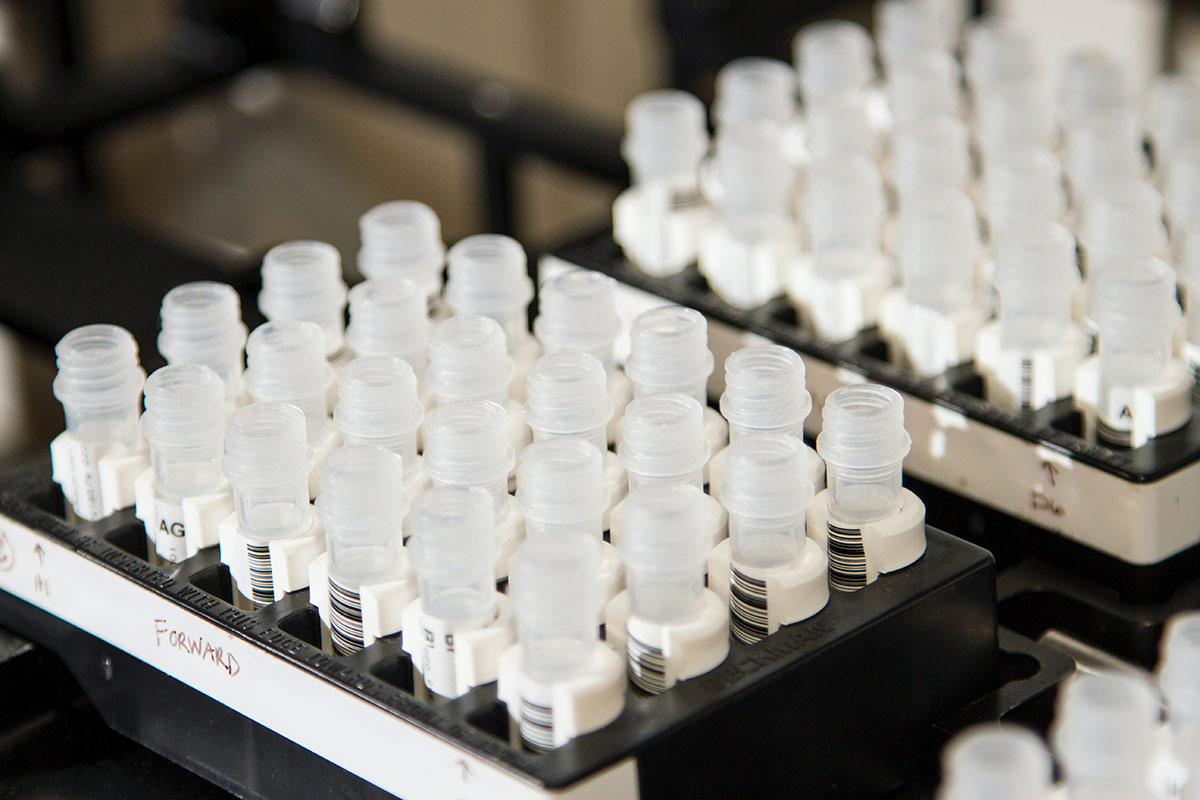Prostate cancer is the second leading cause of cancer deaths among men in the United States. If caught early, prostate canceris curable, but mortality results when the cancer starts to spread (metastasis) beyond the prostate. Understanding the molecular mechanism(s) associated with the cancer spread beyond the prostate is crucial for the diagnosis and treatment of prostate cancer. Our current knowledge on how prostate cancer metastasis develops is limited. Cancer spread or metastasis involves many molecular regulators, complex cell signaling processes in the cell and if identified it can be used as markers for early diagnosis and as potential targets for cancer treatment.
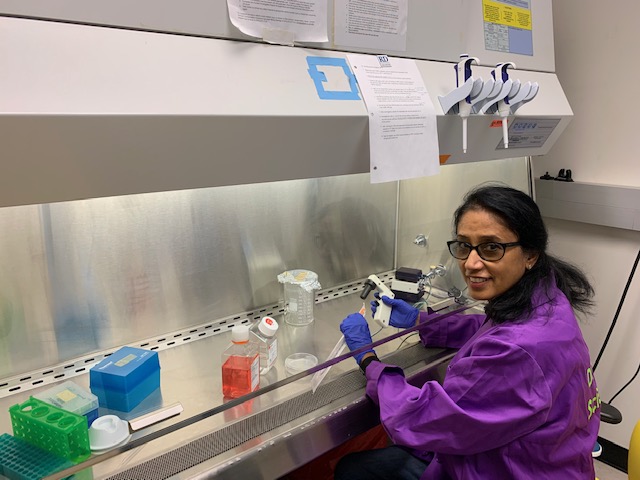
Dr. Sridhar in her lab
Professor Suganthi Sridhar at the University of South Florida (USF) in St. Petersburg is a cancer researcher. Her lab is specifically involved in identifying the role for one of the regulators that prevents cancer spread, a protein called CD82.
CD82 is a protein normally present in all cells including prostate but disappears from the cell when the cancer starts to spread to other organs. CD82 disappearance was first identified in prostate cancer, but current research shows down-regulation of CD82 in many other invasive tumors, including the tumors of the gastric, colon, cervix, breast, skin, bladder, lung, pancreas, liver, thyroid, etc. Down-regulation of CD82 has been correlated to poor prognosis in cancer and serves as a diagnostic biomarker in predicting the metastatic (spreading) potential in various solid malignant tumors.
Dr. Sridhar’s lab research on CD82 and its role in metastasis prevention started when she was a postdoctoral fellow at the VanAndel research institute, Grand Rapids, MI. Using metastatic prostate cell lines that had spread to bone and brain, she and her mentor Dr. Cindy Miranti were the first to identify a protein called c-Met, being regulated by CD82 in prostate cells. c-Met is a protein expressed in all cells in the body and is required for the normal growth of the cells. In prostate cancer, however, c-Met is over expressed and over activated and leads to uncontrollable tumor growth and spread.

Identifying the molecules involved in the metastatic process is crucial, as these could serve either as biomarkers for early diagnosis or as molecular targets for treatment of not only prostate cancer, but also other metastatic cancers, where CD82 disappears. Dr. Sridhar continues to do her research at USF with undergraduate students at the St. Petersburg campus.
In 2018, she established her lab at the USF Health Sciences/John Hopkins Children's Research Institute building, and has since been providing opportunities for more than 15 undergraduate students in cancer research.
Students at her lab are routinely involved in all the cell culture techniques and other experimental protocols like gel electrophoresis, western blots and immunofluorescence techniques used to identify these proteins and their presence in cells. Most are trained in tissue culture techniques and can independently grow prostate cells and maintain them in the lab. In addition, a few of the students have disseminated the preliminary lab research findings both locally at USF St. Petersburg Research Day and nationally at the annual American Society for Cell Biology (ASCB) meeting.
Pictures: Prostate cells (taken from bone metastasis) made to express CD82 (green flourescence) above along with expressed c-Met (red fluroscence ) expressed and merged images of the two.
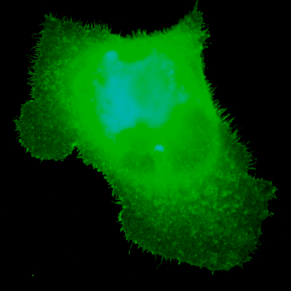
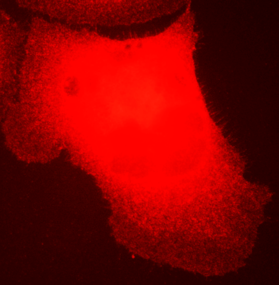

Pictures: Prostate cells (taken from bone metastasis) made to express CD82 (green flourescence) above along with expressed c-Met (red fluroscence ) expressed and merged images of the two.
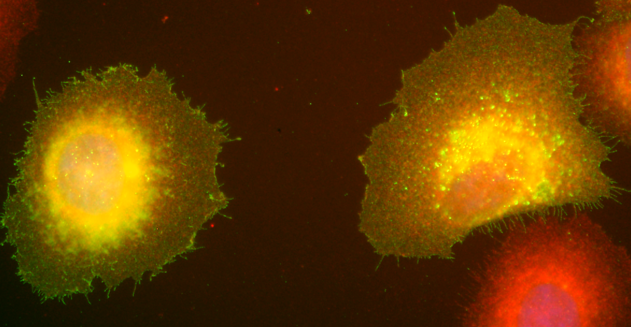
Figure above show prostate cells (from bone metastasis) expressing CD82 (green) and c-Met(red)
